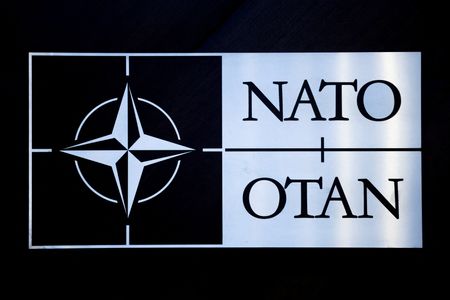By Rachel More
BERLIN (Reuters) -Three Ukrainians have been arrested over a plot to mail exploding parcels from Germany to Ukraine, prosecutors said, putting Europe’s cross-border postal network in the spotlight as a target of suspected Russian sabotage.
Together with cases of parcels detonating at European depots last year, the arrests added to an air of suspicion in Europe, where intelligence officials have warned of a growing threat from hybrid attacks in the wake of Russia’s invasion of Ukraine.
The plot detailed by German prosecutors on Wednesday was described as a test run involving GPS trackers to scope out routes for future arson and bombing attacks.
The suspects are believed to have been in contact with individuals working for Russian state institutions, federal prosecutors said in a statement.
Two of the men, identified in line with German privacy laws only as Vladyslav T. and Daniil B., were arrested over the weekend in Germany. Another, identified as Yevhen B., was taken into custody on Tuesday in Switzerland.
The Kremlin did not immediately respond to a request for comment on the arrests.
“We know that Russia is trying to destabilise Western democracies by all means – including targeted sabotage and perfidious intelligence methods. Our security authorities … are keeping a close eye on this threat,” German Justice Minister Stefanie Hubig said in a statement on the arrests.
Last summer, a series of parcels blew up at depots in Britain, Germany and Poland. Security officials later said the parcels were part of a test run for a Russian plot to trigger explosions on cargo flights to the United States.
Russia denied any involvement.
Those 2024 incidents were reported to have prompted then-President Joe Biden’s White House to contact the Kremlin directly to tell it to stop such activity.
Under Biden’s successor Donald Trump, the United States has since pulled back from coordinated efforts to counter alleged Russian sabotage.
DESTINATION UKRAINE
German prosecutors declined to comment on any connection between the latest case and the incidents of last summer. They did not specify whether the two parcels sent by the Ukrainian suspects were intended for air or overland transport.
The three Ukrainian nationals had prepared two “test parcels” containing GPS trackers to be sent from Cologne in western Germany in late March after telling one or more Russian state actors that they were prepared to carry out attacks, according to the prosecutors’ statement.
Investigators believe the parcels were intended to scout out possible routes.
The Swiss Justice Ministry said Germany had requested extradition of the suspect arrested in Switzerland, but declined to give further details.
Last year, authorities warned businesses of the threat and logistics firm DHL took measures to protect its network following several fires at its warehouse in the eastern German city of Leipzig.
Thomas Haldenwang, head of Germany’s domestic intelligence agency, told a parliamentary committee in October that the country had only narrowly escaped a plane crash when an air freight parcel caught fire.
(Additional reporting by Paul Arnold in Zurich; editing by Madeline Chambers, William Maclean and Mark Heinrich)









